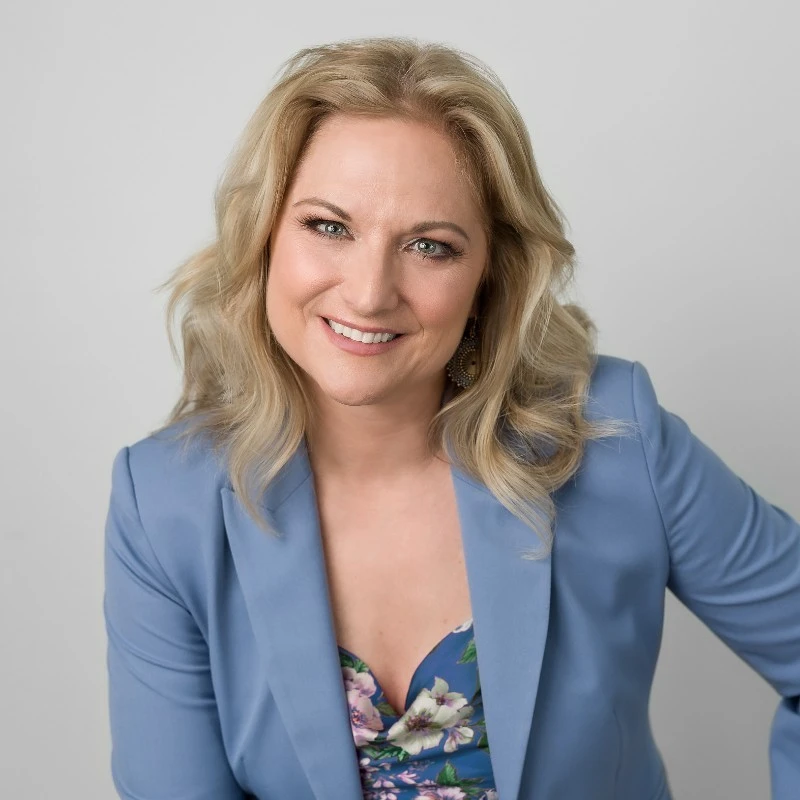How to Overcome Midlife Crisis
How to Overcome Midlife Crisis
Hi, I’m Paul Charisma, and today I’m gonna talk about midlife crisis. We typically think it’s a man thing, it’s a thing the men go through in their 40s and early 50s, but the truth is, there’s lots of women suffering in some fashion through this period in their lives too. And in fact, there’s statistical analysis looking at life satisfaction. We tend to start out and our youth is pretty happy people and then we get lower and lower, lower until we hit this bottom. And then, fortunately, as we mature into the latter part of our life, we get happier again. And there are four ways to overcome the midlife crisis, and I’m going to talk about that today. So if you’re excited to learn, hit the subscribe button and let’s go.
As a coach, public speaker, and best-selling author, I teach topics just like this one all around the world. So stay tuned, and I’ll give you practical tools that you can use to make both yourself and those around you both happier and more successful. Okay, so what is a midlife crisis? Well, we recognize it often, again in the stereotypical man. Suddenly, they start chasing skirts around the office, they want to drive a sports car, they’re growing their hair long and look and shag. You know, what’s wrong with this guy? Well, he’s going through a midlife crisis.
The reason why people get into those midlife crises is that they’re stuck. They’re in this repetitive series of patterns, a pattern of patterns in their lives, and it feels like they’re in a deep rut, and it looks familiar too. Lots of people, if you’re started out in your youth, you got an education, you eventually got a career begun, you maybe got married and you had kids, and all that was exciting and filled with growth and lots of wonderful things going on there. But then it starts getting dull. Your career has been in the same place for a bunch of years. Either you’re still sleeping with the same person next year every night and that’s what, I shouldn’t be a bad thing, but sometimes it can be a bit boring.
Both you and your partner are more concerned about the kids in your careers and maybe the quality of your love life. Your kids are challenged and there’s lots and lots of requirements that you do for them. You drive them to sports games, you coach them in their little issues they’ve got in life, and you’re trying to help them get through all their stuff, and your life is busy with stuff that’s now and more or less a consistent pattern. Work, family, jobs, your house, everything’s kind of got this consistency and sameness to it. And there’s nothing of course necessarily wrong with any of it, but often our values are out of sync with this.
We had youthful dreams when we started out in our young adulthood, and then we find ourselves in this midlife phase where a lot of those dreams, frankly, they started to fade away. If you wanted to be the CEO of your company, well by now, you figured out that you might not be getting there, I’m sorry to say. Maybe you had this idea that you were gonna be with a supermodel and now your spouse, male or female, is like, you know, middle-aged, thirty pounds overweight and not as exciting as they were when you saw them went at 22 years of age. And there’s just the sense that the things that you may have wanted for your life and believed could happen, may have faded away a little bit.
And what that’s a reflection of, is that your values have maybe shifted a little bit and you don’t recognize it yet. So when you see men driving around on their sports cars and chasing skirts and growing the hair long, and they’re too old to be doing those things, it’s a reflection of them trying to chase after youthful values that they used to have. So an example of how men shift in their midlife is, you see them doing all these crazy behaviors that you think are inappropriate. Well, those behaviors are an attempt to go back to the values of their youth.
And these are generalizations. They’re by no means everybody’s values, but young men typically are pursuing wealth. They want to acquire the material things of life. They want to get respect. That’s why they’re trying to start their career and they’re kind of tough with their friends and now have this sense of adventure, and they really have a sense that they have to achieve things to get that respect and have the sense of accomplishing things in life. And so, those are typical young adult male values, and nothing wrong with them. In fact, they’re probably quite appropriate for young men.
And then men find that there is in this stuck place in their life and they’re not happy, and they kind of at some level realize it and so they start chasing after some of those same goals that seem to come with those youthful values. But once men make the shift successfully through their midlife crisis, and sadly not every man does this so gracefully, they tend to go to a different set of values. These kind of midlife mature values, which again is a generalization, are these. Their work men start becoming concerned about the legacy. What comes after them? What kind of future are they creating for other people?
They become more concerned about their family life, the quality of the relationships within their family. Often men will become more interested in spirituality. And again, you’ve heard me describe this before, I’m not talking about necessarily religion, but I mean by spirituality, a distancing yourself from your own ego. And then men also become concerned about their integrity, a living life the way they want to. Are they behaving the way that they mean to behave, that they state outwardly, this is who I am, and then they behave into that? And two men make this midlife shift in values and it tends to make us a lot happier when we take on the values that are appropriate for our age.
Women have an interesting midlife shift as well. Typically, we socialize young women to have this massive belief in their role as nurturers. They nurture their boyfriends, they nurture their families, they nurture their brothers and sisters, they nurture all our friends. And at the same time, in a kind of a contradictory way, they’re feeling this need to be independent and career-driven, and that kind of doesn’t always work if you’re busy nurturing other people. And sadly, we also really socialize women to be concerned about their appearance, to be pleasing to others. And anyhow, that’s a tremendous amount of pressure on young women to always look pretty, and we can see it in our society everywhere. Just go look on Instagram and see how young women are consistently presenting themselves.
But when women make this midlife shift, which tends to happen a bit more organically, it’s not as abrupt and pushing up against a wall like men. But when women make this adjustment, they tend to move more towards personal growth, more towards genuine independence, unlike they had when they were in their youth. They actually tend to be more interested in their own personal happiness. When we see these kinds of shifts, it’s interesting. You think some of there’s a clash between the men and the women. The men are now moving towards spirituality and family connection, and this idea of legacy, and the women are saying, “Oh, that’s really nice honey, but I’m going out to a personal growth class tonight. I’m really interested in my happiness, so I’m gonna go on a hike with my girlfriends.” It can be a tricky time to navigate.
So, getting clear about our values, and Dave, it’s gonna include a link to a values video I’ve created once before, and you can go do an online values survey on my website and figure out what your own values are. It’s very powerful. So, that’s one way to overcome midlife crisis, is getting your values sorted out. The second way is to create change. The big thing about our midlife angst is that there’s too much in our life that’s the same, and really very minor changes can make a big difference. You know, if you can afford it, renovating a house, vacationing in someplace new because a lot of people in midlife, they vacation to the same place every year. Do things that are new, join a club, learn a new sport.
And that’s related to the third way of changing in your mid-life and overcoming the midlife crisis, is to be invested in personal growth. Find yourself shifting into things that are making you a better person. Again, we’re in a place of stuckness in midlife and often feel very little need to grow, or the growth that we have been doing lately was for other people. “I’m coaching my kids. I’m learning certain skill sets for my workplace, but I’m not growing for me.” We’ll go and find some ways to grow for yourself, learning a new language, taking up a new hobby, making changes that are all about how you want to be the better person for you.
And that’s related to the fourth way to overcome our midlife crisis, is to find time for yourself. Most of us in our midlife crisis have got a life filled with ‘shoulds.’ “I should do this. I should do that. My boss needs this. My colleagues need that. My neighbourhood needs this. My community group needs that. My kids are wanting this. My spouse wants that.” And we’re filled with ‘should, should, should’ for other people. And if we can simply find some time to do the things that we want for ourselves and be a tiny bit selfish, give ourselves permission.
So, there it is, that’s your four ways to overcome midlife crisis. I hope you enjoyed this video. If you did, like it, share it, subscribe to the channel, and you’ll get new videos every Sunday morning in your inbox. I’m Paul Kruger, the happiness expert. Thanks for watching.























